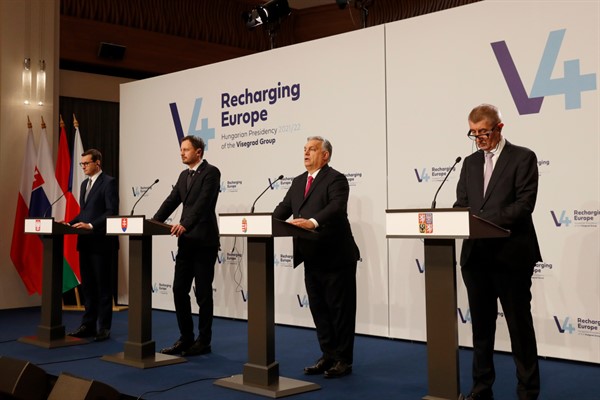Germany’s new coalition government began winning glowing reviews even before it took office in early December. Its coalition agreement, released in November, satisfied many observers on a range of policy areas, both domestic and international. But one European leader wasn’t impressed.
“The gloves are off!” Hungarian Prime Minister Viktor Orban declared as Olaf Scholz took over as Germany’s new chancellor.
Orban has spent the past decade or so stirring up a series of confrontations with his European Union counterparts, as well as the European Commission in Brussels, over rule of law issues and judicial independence. He did so confident that, when push came to shove, Scholz’s predecessor, long-time former Chancellor Angela Merkel, would shield him from any potential consequences.

